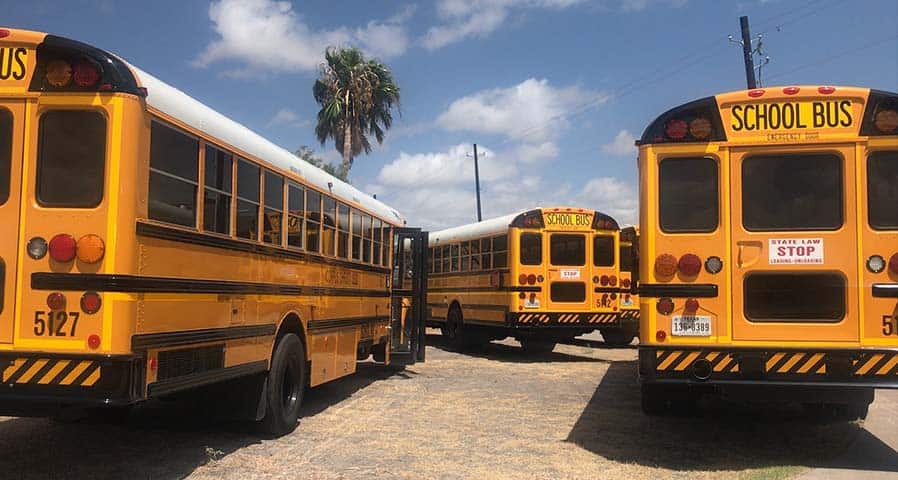Common Questions About EV Cost
Some questions frequently asked by school districts include the average electric school bus cost. Is it comparable to traditional fossil-fuel vehicles? How does the cost change according to battery options? What about fleet maintenance costs and how does the grid affect charging expenses?
Let’s take a look at the answers to these questions.
How Much Does an Electric School Bus Cost?
It is true, that the cost of an electric school bus is higher than a gas-powered vehicle. Depending on the make and model, your EV cost may be as much as four times higher.
EV costs vary depending on the type of electric school bus. Battery size and electricity rates also play a role in the overall cost. Don’t forget to include cooling and heating expenses. It affects how often the battery needs charging. The route length often determines battery size, but it’s not the only aspect to consider. Larger batteries are priced higher, but often require less time charging.
Other factors affecting EV cost include the type of charging units. DC fast chargers are more expensive than Level 2 AC chargers.
While the initial cost for an electric school bus is higher than standard vehicles, bus maintenance expenses are typically lower. With lower fleet maintenance costs, sometimes by as much as 85%, transitioning to EV buses may be more affordable than you think.
 For those just joining us in reviewing EV school buses, this is blog 4 in our series dedicated to electrifying your school bus fleet. We suggest starting with an Introduction to EV School Buses and moving on from there!
For those just joining us in reviewing EV school buses, this is blog 4 in our series dedicated to electrifying your school bus fleet. We suggest starting with an Introduction to EV School Buses and moving on from there!
How to Reduce EV Costs
The majority of school districts do not have the budget to transition to a fully electric fleet, but some incentives help offset the costs. By combining the various incentives, some districts may recoup most or all of their expenses.
Along with the Infrastructure Investment and Jobs Act, there are other local, state, and federal incentive programs. Utility providers also offer incentives, along with some EV bus manufacturers. It’s a good idea to check with officials in your area to see what financial incentives your school district qualifies for.
What To Consider as You Are Transitioning to EV Buses
EV cost and fleet maintenance are considerations, but you also want to think about recycling. How are you going to dispose of the lithium-ion batteries? EV batteries have a lifespan and eventually require replacing.
Do you have a plan for the infrastructure installation? Does it allow you to add more chargers as necessary? What about the bus routes? Will the battery have the power to complete the route and make it back to the service center? Don’t forget about having the right technicians on hand. EV bus maintenance is different than keeping a gas-powered fleet running.
You also want to keep in mind that EV technology is constantly advancing. It also means EV costs are becoming more affordable.
With incentives and the right planning, you can make EV costs more affordable.
Our EV charging experts are here to answer any questions you might have about transitioning your fleet of buses to electric. We offer a turn-key EV charging solution that covers, electrical upgrades, products, installation, incentives, and EV charger management. To speak with one of our EV charging experts, call 484-816-2076, email [email protected], or schedule a call that fits your needs by clicking the button below.








0 Comments